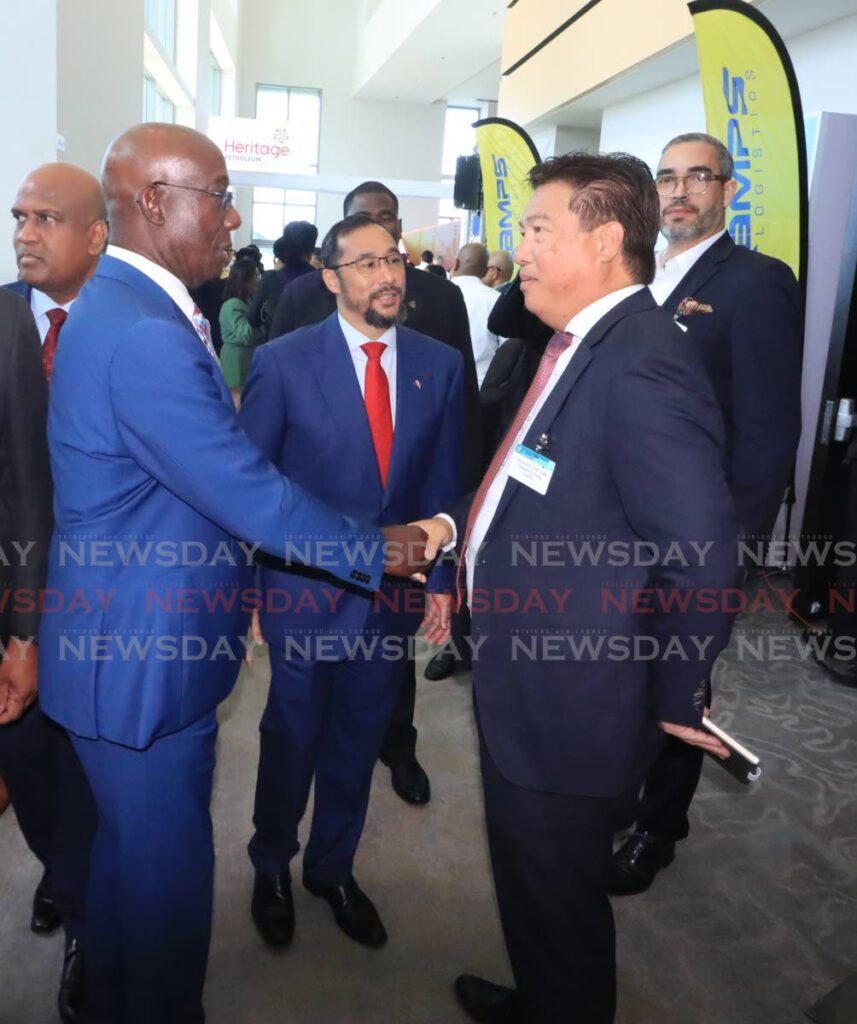Young: Oil, gas will continue to drive Trinidad and Tobago

Minister of Energy Stuart Young has said despite growth in renewables in 2023, fossil fuels continue to be the driver of economic growth in developing countries. He spoke at the annual Energy Conference, which began at the Hyatt Regency on Monday.
Young used the opportunity to provide an update on government’s policies and initiatives in the domestic energy sector, saying the conference pushes boundaries by addressing major developments in the global energy sector and provides networking opportunities.
Young acknowledged the abatement of the energy crisis, saying the world is grappling with the aftermath of the Russian invasion of Ukraine. He said fossil-fuel prices have been experiencing a decline from their 2022 peak.

He underscored the persisting volatility in energy markets, geopolitics and the global economy, saying despite these challenges, oil and gas investments were projected to increase by 11 per cent to US$528 billion by the fourth quarter of 2023 – the highest level since 2015.
Young said the global energy sector still maintains an 82 per cent share of fossil fuels as primary energy consumption globally. He pointed out that the growth of renewables in 2023 did not diminish the pivotal role of fossil fuels in driving economic growth.
Young highlighted the theme of the conference, Accelerating Action, and its timeliness in addressing the choices and challenges faced by energy-exporting countries like TT.
"The global population is set to increase from 7.9 billion in 2022 to approximately 9.6 billion in 2050, adding to rising energy demand."
To meet this demand, global energy consumption is projected to surge by nearly 50 per cent over the next 30 years, according to the US Energy Information Administration. The Gas Exporting Countries Forum (GECF) projects fossil fuels will maintain a leading role in the global energy mix, accounting for 71 per cent in 2050, with natural gas surpassing coal as the largest energy source by 2047.
While developed countries explore low-carbon solutions and energy efficiency, Young says the Caribbean still grapples with energy-security concerns. Despite abundant renewable and non-renewable energy resources in the region, oil and gas remain the dominant primary energy resources.

He said regional energy co-operation initiatives, such as PetroCaribe, a regional oil-procurement agreement between Venezuela and Caribbean member states, along with the heads of government of Caricom, urged the removal of sanctions on Venezuela to benefit from PetroCaribe and further progress on cross-border natural-gas fields between TT and Venezuela, citing the Dragon gas deal as an example.
Young said TT's hydrocarbon resources are instrumental in economic development and have led to strategic initiatives, including the 30-year exploration and production licence for the Dragon field in Venezuelan territorial waters, outlining the ongoing Dragon Project and its potential to enhance the Caribbean region's energy security through access to natural gas reserves.
Young said the restructuring of Atlantic LNG, signed in December 2023, marked a milestone for achieving an agreement on the facility's future configuration, consolidation, licence term, tariff structure and third-party access.
He expressed optimism about reaping the benefits of a new market-related pricing structure after the completing the restructuring, providing opportunities for new entrants to the LNG business.
Addressing the financial returns from the monetisation of natural gas, he acknowledged suboptimal returns, citing Poten and Partners' 2015 Gas Master Plan Report. He spoke on the government's efforts to improve natural gas supply through new acreage offerings and cross-border initiatives with Venezuela.
He also provided updates on several upstream projects, including the Angelin Field, the Cypre Plan of Development, and the Mento Field's joint venture with EOG, saying all are contributing to increased natural-gas production and also detailing the country's engagement in deep-water projects, such as the Calypso Project with Woodside.
As the government focuses on sustaining production through investment, Young discussed fiscal incentives introduced in the 2024 budget, targeting small shallow-water producers and mature marine oil fields.
He projected an increase in crude oil and condensate production from 54,600 barrels per day in fiscal 2023 to 69,487 barrels per day by fiscal 2028.
He announced NGC's commitment to green agenda initiatives.

Comments
"Young: Oil, gas will continue to drive Trinidad and Tobago"